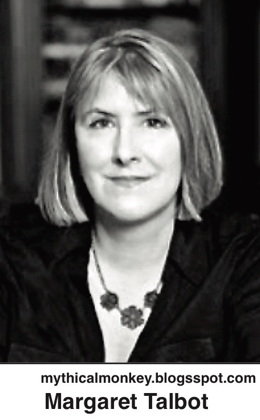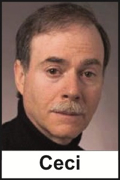Rascals case in brief
In the beginning, in 1989, more than 90 children at the Little Rascals Day Care Center in Edenton, North Carolina, accused a total of 20 adults with 429 instances of sexual abuse over a three-year period. It may have all begun with one parent’s complaint about punishment given her child.
Among the alleged perpetrators: the sheriff and mayor. But prosecutors would charge only Robin Byrum, Darlene Harris, Elizabeth “Betsy” Kelly, Robert “Bob” Kelly, Willard Scott Privott, Shelley Stone and Dawn Wilson – the Edenton 7.
Along with sodomy and beatings, allegations included a baby killed with a handgun, a child being hung upside down from a tree and being set on fire and countless other fantastic incidents involving spaceships, hot air balloons, pirate ships and trained sharks.
By the time prosecutors dropped the last charges in 1997, Little Rascals had become North Carolina’s longest and most costly criminal trial. Prosecutors kept defendants jailed in hopes at least one would turn against their supposed co-conspirators. Remarkably, none did. Another shameful record: Five defendants had to wait longer to face their accusers in court than anyone else in North Carolina history.
Between 1991 and 1997, Ofra Bikel produced three extraordinary episodes on the Little Rascals case for the PBS series “Frontline.” Although “Innocence Lost” did not deter prosecutors, it exposed their tactics and fostered nationwide skepticism and dismay.
With each passing year, the absurdity of the Little Rascals charges has become more obvious. But no admission of error has ever come from prosecutors, police, interviewers or parents. This site is devoted to the issues raised by this case.
On Facebook
Click for earlier Facebook posts archived on this site
Click to go to
Today’s random selection from the Little Rascals Day Care archives….
Click for earlier Facebook posts archived on this site
Click to go to
Today’s random selection from the Little Rascals Day Care archives….
Seeking corroboration isn’t disrespectful – it’s useful
 Dec. 10, 2014
Dec. 10, 2014
“More than a decade ago, I wrote about the McMartin preschool case, and other satanic ritual child abuse accusations that turned out to be false. Back then, the slogan many supporters of the accusations brandished was, ‘Believe the Children.’ It was an antidote to skepticism about real claims of child abuse, just as today, ‘Believe the Victims’ is a reaction to a long history of callous oversight of rape accusations.
“ ‘Believe the Victims’ makes sense as a starting presumption, but a presumption of belief should never preclude questions. It’s not wrong or disrespectful for reporters to ask for corroboration, or for editors to insist on it. Truth-seeking won’t undermine efforts to prevent campus sexual assault and protect its victims; it should make them stronger and more effective.”
– From “Reporting on Rape” by Margaret Talbot at newyorker.com (Dec. 7)
Given the prosecution’s strategic secrecy, the pursuit of corroboration in the Little Rascals case presented an enormous challenge. But news coverage could been far more skeptical and revealing – perhaps even game-changing. The editor of the News & Observer certainly thought so.
Leading questions, not spontaneity, marked interviews
 May 4, 2012
May 4, 2012
“Written reports that contain statements such as ‘The child said that Mr. Bob told them secrets’ are meaningless.
“We need to know whether this was a spontaneous remark, whether this was prompted by an open-ended question (e.g., “What did Mr. Bob tell you?”), or whether this is merely the interviewer’s memory of the gist of a conversation in which the interviewer asked, ‘Did Mr. Bob ask you to keep secrets?’ and the child reluctantly may have replied, ‘Yes.’
“Some summaries of the interviews are written in such a way as to make one believe that children made spontaneous and detailed statements about sexual abuse. However in the few instances where we have transcripts of other interviews, it is clear that the child only responded ‘yes’ or ‘no’ to a barrage of leading questions.”
– From “Jeopardy in the Courtroom: A Scientific Analysis of Children’s
Testimony” by Stephen J. Ceci and Maggie Bruck (1995)
‘They constantly asked him the same thing over and over again….’

Mills
Jan. 12, 2018
“[Bob Kelly’s] defense contended that the children’s allegations were just the responses of suggestible youngsters eager to please the interrogators who were urging them to disclose abuse. [Interviewed in “Innocence Lost: The Verdict”,] one mother whose child did not disclose abuse is seen heaping scorn on the police and social services interrogation of her child:
” ‘They constantly asked him the same thing over and over again, and they would rephrase it…. They talked to him, it had to be an hour and a half or so before we interrupted and they wanted to continue talking to him. I would guess the same questions were asked five or six times.’
“This mother’s recollection is one of the few clues to the police methods in this case. Police and prosecutors declined to cooperate with ‘Frontline.’ All of the investigative notes and tapes were destroyed, and the only source material available at trial was after-the-fact summaries….”
– From “Justice Abuse? ‘Frontline’ Documentary Takes Hard Look At A Small-town Scandal” by Bart Mills in the Chicago Tribune (July 20, 1993)
![]()
A rare chance to watch the story unfold
May 9, 2013
CBS Correspondent Mike Wallace narrated this 1999 production that covers a number of the ritual abuse court cases, including Little Rascals.
(A more modern version of this video posted in 2013 may be available soon. In the meantime, click here.)











0 CommentsComment on Facebook